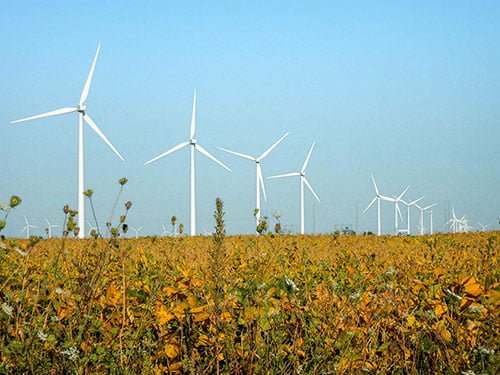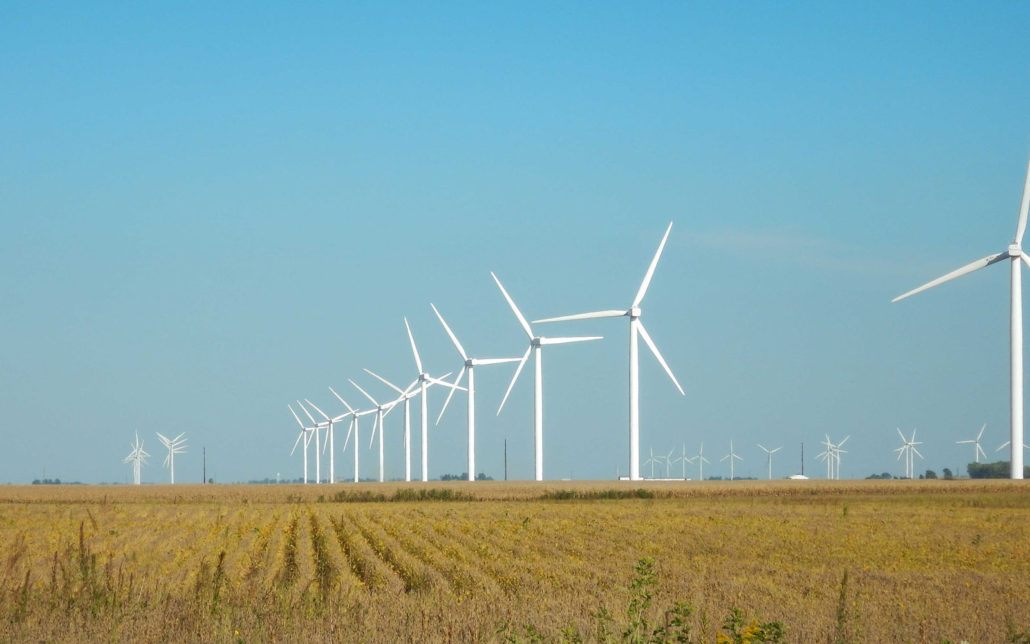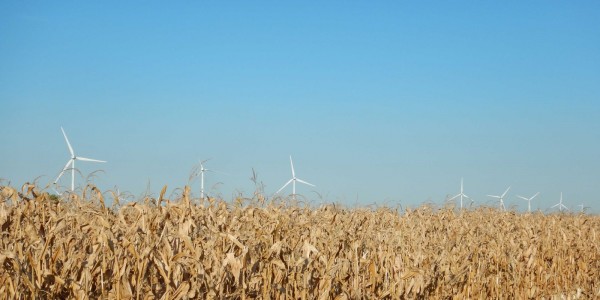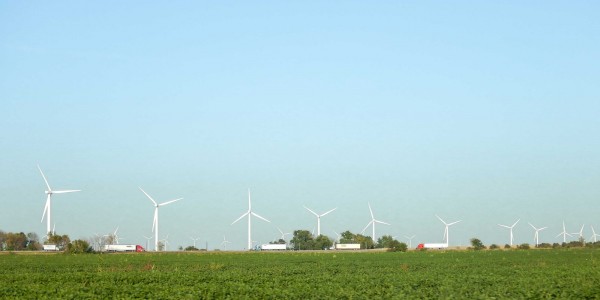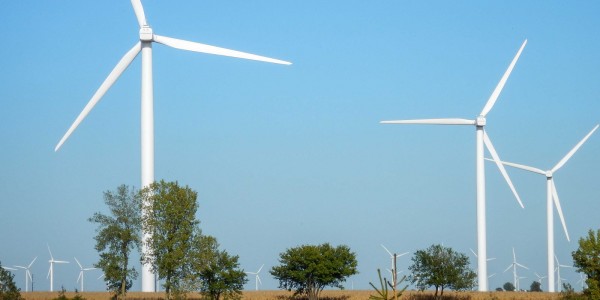Project Description
Location: White County, Indiana
Installed Capacity: 500.85 MW
Construction Cost: $100,000,000+
Year Commissioned: 2009 – 2010
With over 300 wind turbine generators and a power generating capacity of 500.85 MW for four phases, the Meadow Lake Wind Farm is one of the largest wind farms in the United States. Each phase was supplied with turbines from different manufacturers including Acciona, General Electric (GE), Suzlon, and Vestas, and construction of the individual phases was awarded to different Balance of Plant (BOP) contractors. RRC provided geotechnical engineering, structural engineering, and construction material testing services for the project, covering all stages from planning and final development through construction.
RRC’s geotechnical engineering services included subsurface exploration comprised of conventional soil borings, continuous rock coring, and Cone Penetrometer Tests (CPT), and specialized geophysical surveys comprised of Multi-Channel Analysis of Surface Waves (MASW) surveys, along with engineering analyses and design. Due to the prevalence of shallow groundwater at the project site, numerous temporary piezometers were installed and monitored to facilitate foundation buoyancy calculations and to provide guidelines for site dewatering during construction. Soft or compressive clay soils were encountered during the subsurface investigation phase, requiring deep ground improvement to support the proposed wind turbine generator (WTG) loads at several tower sites. Rammed Aggregate Pier (RAP) systems were utilized to stiffen deep marginal soil deposits. The process involved constructing high density, stiff RAPs to control settlement and improve bearing pressures and rotational stiffness.
Structural engineering services included design and sizing of concrete, reinforcing, embedment rings, and anchor bolts for the WTG foundations to adequately resist the loadings provided by the turbine supplier. Due to the scale of the project, it was important for RRC to create the most economical design possible in order to provide cost savings over the many turbine sites of the project. As part of the effort to economize project construction, each individual phase utilized multiple foundation sizes based on differing soil bearing pressures and groundwater conditions at each turbine site. RRC developed 11 different turbine foundation designs for the four phases.
Coordination of the different foundation sizes, as well as providing necessary provisions for soil corrections and deep soil improvement techniques, was critical to achieving an economical and well-planned project. Working together as a team, RRC’s geotechnical and structural engineers delivered a sound yet economical turbine foundation design for the Meadow Lake project.
